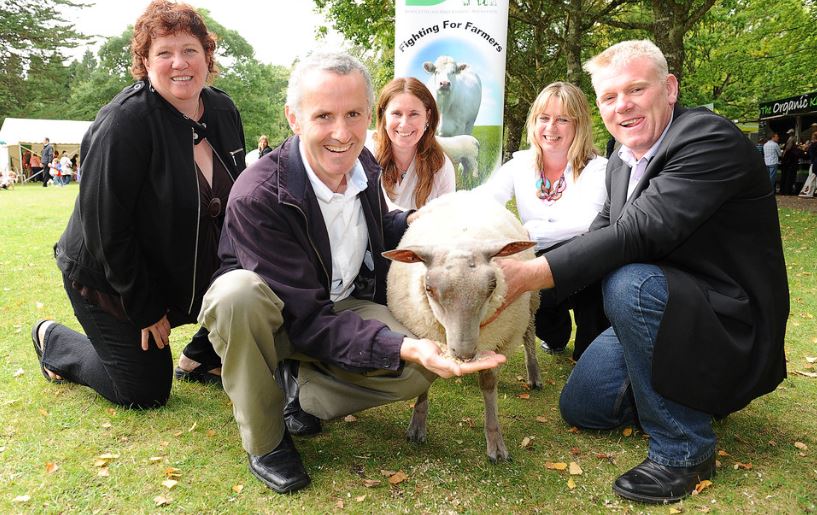Irish agriculture “needs to look at alternatives” to beef and milk production, according to Ciarán Cuffe, the Green Party MEP candidate who is expected to top the polls in the Dublin constituency.
As Ireland’s European and local election count continues this morning, Monday, May 27, one of the main talking points is the surge in Green Party support at local level, while early indications also suggest that the party could hold up to three seats at European level.
Early indications also suggest that First Vice-President of the European Parliament and Midlands-North West representative Máiread McGuinness is expected to be returned.
Speaking to AgriLand at a recent Association of European Journalists event in Dublin, Cuffe – a sitting councillor, architect, planner and lecturer in urban regeneration at the Technological University Dublin – outlined his views on the future of Irish agriculture and the sector’s role in tackling climate change.
“The big issues of our time are globalisation, climate change and migration – these demand regional co-operation, so Europe is really important at this moment.
“It’s very easy to obsess about Brexit. But, meanwhile, Europe and the European Union are moving out to the east and it’s important that we are there in south-eastern Europe, in the Balkans, to help them to transition away from coal, away from oil towards a sustainable economy.
If we are to face up realistically to the challenge of climate change it cannot be business as usual. We don’t need a revolution; but we do need radical changes.
“Instead of promoting beef we need to move towards biomass; instead of promoting oil and coal we need to promote wind; instead of loose-touch regulation we need passive housing,” said Cuffe.
Paragon of virtue
Cuffe contends that in every area of economic activity – including: construction; energy; agriculture; and transportation – policy must be shifted towards a low-carbon economy.
He questions the commitment of the European People’s Party (EPP – of which Fine Gael is a member) and the Alliance of Liberals and Democrats for Europe group (ALDE – of which Fianna Fáil is a member) to this cause in the European Parliament.
“The ALDE and EPP parties are promoting the old model of growth. We need growth; but we need green growth.
“You can’t spend the bulk of your transport budget on roads and motorways and imagine that your carbon emissions will come down.
You can’t promote beef sales to China, South America and elsewhere and expect that Ireland will be a paragon of virtue when it comes to our emissions.
“I’m not saying that we have to move away completely from the beef industry; but we have to look at options for family farms that offer alternatives – that can add value for instance in moving away from the live export of cattle into adding value to farms here at home and to industry here at home.”
Race to the bottom
Cuffe points to what he sees as the potential for horticulture and diversification.
“Instead of simply sending milk powder to China, let’s look at what else we could do with that milk because the brand of Ireland is amazing in terms of grass fed and in terms of family farms.
We need to put a lot more effort into promoting the quality of Irish farming, rather than racing to the bottom.
“I think often Bord Bia simply goes for the race to the bottom and it’s disturbing when people say to me that ‘Marks & Spencer is doing more for a low-carbon transition that Bord Bia is’.
“We need to look very carefully at how to transition and how we can give farms a really vibrant future – there is a lot we can learn about horticulture, energy, diversification and about adding value.
“We need to offer alternatives to beef and milk production,” he said.
